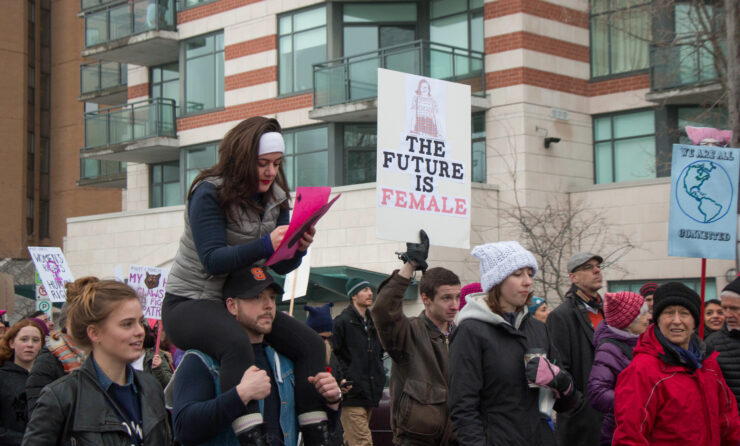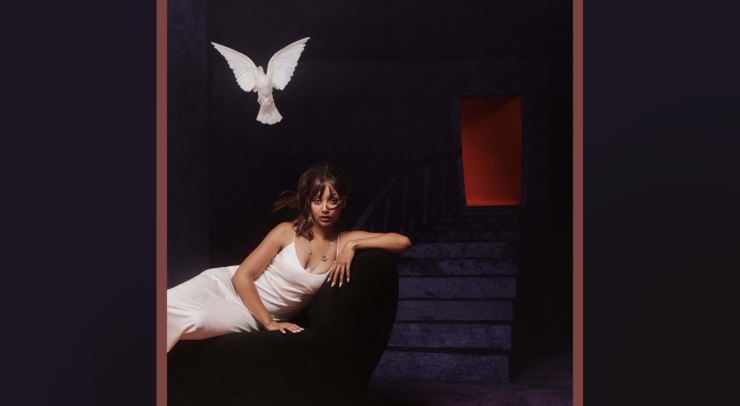We’re back with more unsolicited opinions about who should win 2023’s biggest awards
A few weeks ago, the Fulcrum staff took a walk in the shoes of the 12,000-member Recording Academy and decided whom we would give the Grammy awards to.
We won’t talk about how accurate our decisions were (it’s labelled as not a prediction article). The same disclaimer stands here. Ahead of the 2023 Oscars, the Fulcrum’s non-anonymous panel voted from the real list of nominees.
We’re ignoring the extensive eligibility and voting rules Academy members are required to follow. Starting in 2024, the Oscars will also implement further representation and inclusion standards.
Best Picture
All Quiet on the Western Front or Everything Everywhere All at Once
We’re starting this off with two options. Yes, we’re aware the Academy would never allow a tie, but since we couldn’t decide on a criteria, we settled on two options — each of which could win for its own reasons.
All Quiet on the Western Front could win because it’s a war movie. War movies tend to perform very well at the Oscars, and this year might be no different. It’s been done before, but the genre is accoladed for a reason.
On the other hand, Everything Everywhere All at Once is something new and unique, mixing sci-fi, comedy, and absurdism all into one heartwarming story. Some of us worried that it was overhyped, but the film lived up to its reviews. For that reason, we also saw the Academy choosing Everything Everywhere All at Once.
Actor in a leading role
Austin Butler in Elvis
Austin Butler had a difficult task ahead of him when he took the role of Elvis in the biopic about the “King of Rock and Roll.” He had to beat out Harry Styles, Ansel Elgort, Miles Teller, and Aaron Taylor-Johnson to get the role, and then he had to impress audiences better than any Elvis impersonator anyone had ever seen.
We think he did it. Butler put his entire life into his performance and into doing Elvis justice on-screen.
Dishonourable mention: Brendan Fraser in The Whale. It’s been saluted as Fraser’s comeback role, but as we’ll talk about later, we didn’t like the movie.
Actress in a leading role
Cate Blanchett in Tár
In the heated race between Blanchett and Yeoh, we’ve decided to call in favour of Cate’s powerhouse performance as Lydia Tár. The fight for the award of an actress in a leading role has made it online; frontrunner Michelle Yeoh came under fire this week for reposting a British Vogue article asserting her claim to the title. According to some, Yeoh’s post — which singles out her competitor — might be against the Oscars’ campaigning rules.
Both actresses are true titans of the silver screen who excelled in their respective films, but we feel Cate Blanchett came onto the set of Tár with the artistry of a true master, leaving a slightly deeper impact than Yeoh achieved as Evelyn Wang.
Actor in a supporting role
Ke Huy Quan in Everything Everywhere All at Once
Ke Huy Quan’s role in Everything Everywhere was integral to creating the conflictual family dynamic that exposed the movie’s themes of generational conflict, love, and absurdism. From being the soft and caring dad to all the strange multiverse identities he took on, one thing in his role was constant: his superb ability to touch our hearts. One of the most unforgettable lines in the film is uttered by his character Waymond Wang: “In another life, I would have really liked just doing laundry and taxes with you.” And for that reason, this category goes to him.
Actress in a supporting role
Angela Bassett in Black Panther: Wakanda Forever
This turned out to be the most lacklustre acting category by far. Kerry Condon was lovely, but not quite exceptional. Hong Chau might have been great in The Whale (we wouldn’t know, haven’t watched it.) The lack of competition clears the way for an obvious choice in Angela Bassett receiving her first Oscar. Her performance as Queen Ramonda in last year’s Black Panther: Wakanda Forever was easily the strongest of the film. True to her stature, she brought a beautiful depth to the role which we don’t often see in the MCU. She undeniably did the thing.
Dishonourable mention: Jamie Lee Curtis in Everything Everywhere All At Once. No shade to the Halloween Queen, but we never thought this campaign would make it this far. We aren’t sure how she got here, and neither does she, but here’s hoping the Academy votes thoughtfully.
Animated feature film
Guillermo del Toro’s Pinocchio
This version of Pinocchio brought to the screen the great idiosyncrasies involved in stop-motion film. Each scene can be appreciated for the production team’s effort in ensuring the most minute details were included, from the set design to the puppet fabrication. The plot is also distinctive in handling both political and personal takes on individualism, domination, and familial relationships. Instead of letting another gigantic Disney film take this category, we decided to award needed recognition to the organic craftsmanship of del Toro.
Honourable mention: Turning Red
We had to give Turning Red the mention it deserves because of its creative spirit in showing how girlhood manifests in diverse cultural settings. It’s simply a classic, heartwarming film about growing pains unique to women, resonating especially with those from the GTA.
Cinematography
All Quiet on the Western Front
It might be conventional to celebrate the war movie for cinematography, but the quality is undeniable. In a genre where dialogue can be so sparse, the camerawork often realizes a considerable portion of the storytelling. Not only is All Quiet on the Western Front stunning visually, but its framing and movement work gracefully to support the anti-war themes of the film. Indescribable feelings of grief, confusion, and fear are sharply amplified through the screen and such an accomplishment is beyond worthy of praise.
Costume design
Black Panther: Wakanda Forever
What makes Black Panther: Wakanda Forever such a great film is the time and effort they dedicate to the creation of Wakandan culture. Much of this is developed through the characters’ intricate dress, from dazzling armour to blooming feathers. All of us were thoroughly impressed seeing the costumes featured in the film and their respective combinations of colour, fabrics, and materials.
It can’t be compared to the rest of the nominees in this category. (Like the Elvis costumes — I mean, couldn’t you just pick it up from any one of the thousands of impersonators on the street?)
Directing
The Fabelmans
Steven Spielberg honoured his notoriety last year with an autofictional showpiece that hardly anyone watched. Nevertheless, The Fabelmans is endlessly impressive. Every performance, from lead to supporting, is pitch-perfect. Each character is treated with a startling level of empathy, despite their flaws. The effort is evident and, despite its two-and-a-half-hour runtime, this film is utterly compelling at every turn.
Documentary feature film
All the Beauty and the Bloodshed
Nan Goldin is not only a phenomenal photographer, but an unapologetic activist whose story is beautifully woven in a compilation of photographs and video clips of both past and present. Laura Poitras knows how to tell a story that coherently puts together the personal and political, showing Goldin’s art-activism as something so personally honest and socially significant.
International feature film
All Quiet on the Western Front
This nomination list isn’t fair whatsoever. Out of the five nominees, one is nominated for Best Picture and many other big awards this year. We’re pretty sure All Quiet on the Western Front will win the award for International Feature Film. (Plus, it’s the only one any of us have seen.)
Makeup and hairstyling
Elvis (for makeup) and All Quiet on the Western Front (for dirt application)
We didn’t really see any top contenders in this category, but if we had to choose, it’d go to Elvis. Special shoutout to Priscilla’s super pretty 60s makeup look, and all the greased-up poofy hair. The comparison photos between Austin Butler’s Elvis and the real Elvis look similar enough, and that’s essential for any biopic.
Although you’d think putting dirt on your face to look like you just got out of a battle would be an easy splatter here and there, the cast from All Quiet on the Western Front shows that it involves much more detail than that. We never realized that there’s an art to dirt application to face; the mix of blood, bruises, and grime made an outstanding case of realism in this film.
Music
We nominate: Tár
We don’t understand why Tár didn’t receive a nomination for its music seeing as it’s about a composer. Perhaps it didn’t meet the Academy’s criteria for the award, but whatever the case, our added nomination and award-winner is definitely Tár.
Honourable mention: All Quiet on the Western Front
Production design
Avatar: The Way of Water
Production design sounds more technical than the other categories, so we feel like Avatar: The Way of Water deserved to win in this category because of its CGI. Somehow they made the natural landscapes in this film look insanely phenomenal with whatever magic software they use.
Honourable mention: All Quiet on the Western Front
In any war film, the production design needs to be good, because it needs to convince us that it’s authentic to history. So even though All Quiet on the Western Front has an inherent advantage, it didn’t fail to impress us with its cinematography of destruction.
Sound
We nominate: Nope
The Academy’s nominees weren’t particularly impressive to us. The technical aspects of a film are only as powerful as their contributions to the overall impression. Thus, it’s more than strange that Nope failed to earn a nomination in this category. To conceptualize a sound design for an alien as unique as Jean Jacket is extremely ambitious, and yet, the execution was outstanding. We can still remember the sound of the attacks and, most importantly, they’re still spine-chilling.
Visual effects
Avatar: The Way of Water
There was no way we couldn’t give this award to Avatar: The Way of Water. In a previous review by the Fulcrum, we applauded its visual effects, but not its story. The CGI in Avatar is, we think, what brings the movie to life.
Adapted screenplay
Women Talking
For the adapted screenplay award, we decided to give the Oscar to Women Talking. The film has a run-time of an hour and forty-five minutes; it consists mostly of dialogue (read: women talking). We thought that being able to approach difficult topics with the necessary sensitivity was an ode to the script and screenplay of this film.
Original screenplay
The Fabelmans
Finally, for original screenplay, we’ve decided the Academy Award should go to Spielberg’s The Fablemans. It’s loosely based on Spielberg’s childhood and early years as a filmmaker. What could’ve been a boring autobiographical film about a great director took shape as a profound exploration of love and artistry. Spielberg managed to adapt his own life with a striking level of clarity and compassion.
Everything said above are the personal opinions of three Fulcrum writers — keep in mind: we aren’t professional movie critics. If you’re interested in hearing what professionals have to say about the nominations, the Oscars will air on March 12.







